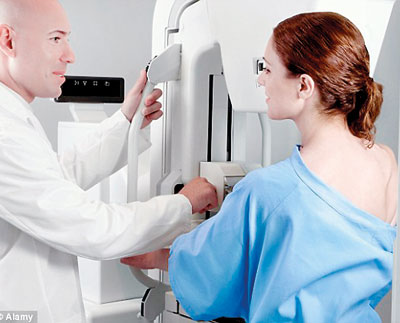Sunday Times 2
Shedding 6lbs could help beat breast cancer
Losing just under half a stone could be as effective as a so-called wonder drug at boosting the survival chances of breast cancer, researchers claim.
A major study has found that women with the illness who shed modest amounts of weight and keep it off while undergoing treatment were a fifth less likely to die.

Academics say the findings are so promising they suggest that weight loss is as effective as a breakthrough treatment or chemotherapy
And when the results were analysed more closely, they showed that survival odds rose by almost 70 per cent for patients with the deadliest type of breast cancer.
Academics say the findings are so promising they suggest that weight loss is as effective as a breakthrough treatment or chemotherapy.
It is now well established that being overweight dramatically increases a woman’s risk of developing breast cancer.
There is also growing evidence that heavier women do not respond as well to treatment and their tumours are more likely to return.
But this is the first study to show that purposely losing weight can greatly boost the survival odds.
US scientists behind the research think that it lowers levels of the hormone oestrogen, which is known to trigger cancer.
They also think it reduces levels of glucose and insulin which would otherwise ‘feed’ cancerous cells.
A total of 975 women diagnosed with early stage breast cancer were put on diets for five years, whereby they halved their fat intake by avoiding butter, margarine, oil and desserts. On average they lost just 6lb – less than half a stone – and kept it off throughout that period of time.
Ten years later, Professor Chlebowski compared these woman to another group who did not lose weight. He found that overall, women who lost weight were 19 per cent less likely to have a recurrence over the next ten years.
But crucially, patients with one of the deadliest types – triple negative, which is responsible for between 15 and 20 per cent of cases – were 69 per cent less likely to have a recurrence within a decade.
On average they lived 1.9 years longer than women who did not lose weight – for 13.6 years compared to 11.7 years. Patients with triple negative tumours generally have much lower survival chances because many of the standard drugs are ineffective.
Professor Chlebowski, who presented his results at the San Antonio Breast Cancer Symposium in Texas, said: ‘It looks like this is a big signal. Breast cancer patients really should consider [weight loss].’
Professor Anthony Howell, a cancer specialist at the University of Manchester, said the increase in survival was as good as that demonstrated by a breakthrough treatment, such as wonder drug Tamoxifen, which can both cure and prevent cancer.
He added: ‘What we have now is that purposefully losing weight has a positive benefit. It suggests that getting back to a healthy weight would be a good idea.’
Despite the promise of the results, researchers cannot be sure that they weren’t just a statistical blip. In scientific terms they are not ‘significant’.
But other trials involving breast cancer patients being put on diets are under way, and the results are expected within three years. If they show similar benefits, women could be routinely told to lose weight as part of their treatment.
© Daily Mail London

